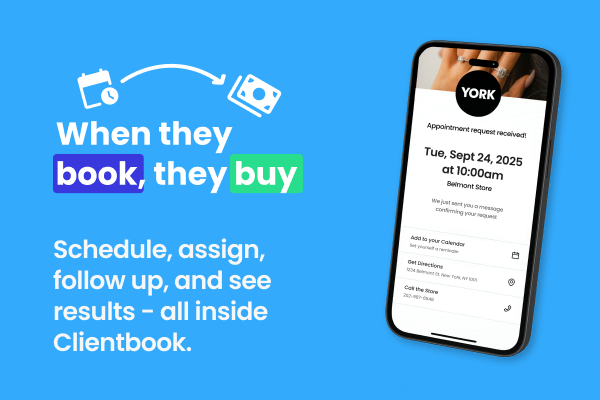Whether you're a retail business owner, restaurant business owner, or any other type of business owner, you're likely going to encounter the need for a point of sale system. POS integrations are most known for enabling cashless payments, but in reality, they can do so much more.
We've put together a beginner's guide to POS integrations so you can make the best decision for your business and find the POS integration that works for you.
What are POS integrations?
Point of sale (POS) integrations refer to the process of connecting a POS software system with other software applications, sale systems, or services to enhance and streamline the different parts of business operations.
These direct integrations enable the POS system to work in harmony with other tools, allowing businesses to automate tasks, improve efficiency, and provide better customer experiences.
Here's an overview of some common types of POS integrations and their benefits:
1. Payment processor integrations
2. Inventory management integrations
3. E-commerce integrations
4. Customer relationship management (CRM) integrations
5. Accounting and financial integrations
6. Analytics and reporting integrations
7. Marketing and loyalty program integrations
POS integrations play a vital role in modern business operations, helping businesses optimize processes, reduce manual labor, and provide a seamless shopping experience for customers as a customer service tool. The choice of integrations should align with a business's specific needs and industry, ultimately improving overall efficiency and profitability.
Curious how to win Gen Z’s business? Learn all about it in our free downloadable eBook
Why are POS integrations important?
POS integrations have the power to optimize business functions and improve customer happiness. Here are a few key reasons why POS integrations are vital to your business:
More efficient
POS integrations automate manual tasks, reducing the need for double data entry and minimizing errors. This streamlines operations, saving time and resources.
Improved accuracy
Integrations reduce the risk of human error associated with manual data entry. This leads to more accurate sales records, inventory management, and financial reporting.
Real-time data synchronization
Integrations enable real-time data sharing between different systems. For example, inventory levels are updated instantly when a sale is made, preventing overselling or running out of stock.
Seamless payment processing
Payment processor integrations ensure smooth and secure payment transactions, enhancing the customer checkout experience and reducing the likelihood of payment errors.
Multi-channel management
E-commerce integrations allow businesses to manage both physical and online sales channels from a single platform. This ensures consistency in product information and inventory levels.
Customer insights
CRM integrations provide valuable customer data, enabling businesses to better understand customer preferences, purchase history, and behavior. This information is crucial for targeted marketing efforts and improving customer relationships.
Inventory control
Inventory management integrations help businesses optimize stock levels, reduce carrying costs, and prevent stockouts. This results in more efficient supply chain management.
Data analytics
Analytics and reporting integrations provide businesses with valuable insights into sales trends, operational performance, and customer behavior. Informed decision-making is key to business growth.
Competitive advantage
Businesses that utilize POS integrations often gain a competitive edge by offering a more streamlined and convenient shopping experience. This can lead to increased customer loyalty and business benefits.
Scalability
As small businesses grow into larger businesses, POS integrations can easily scale to accommodate increased transaction volumes, additional sales channels, and expanded product offerings.
Save money
By automating processes and reducing the need for manual labor costs, POS integrations can lead to cost savings in terms of labor expenses and reduced inventory holding costs.
Customer satisfaction
Integrations contribute to a smoother and more efficient shopping experience for customers. Faster checkouts, accurate product availability information, and personalized interactions enhance customer satisfaction.
Overall, POS integrations present advantages for businesses looking to streamline operations, enhance customer experiences, and stay competitive in today's dynamic marketplace. They empower businesses with the tools and insights needed to make informed decisions, improve efficiency, and drive growth.
Integrate your POS with Clientbook
At Clientbook, we offer direct integration with dozens of point of sale systems for retailers to amplify data without disrupting business processes. Here are a few of our third-party integrations:
- Rain
- The Edge
- Shopify
- Lightspeed
- Jewel360
- Punchmark
We’ve successfully integrated with each of these platforms and consistently make retailers and their customers happy.
Clientbook's most useful tools for retail business integration
So, why should you begin the integration process with Clientbook? Because you can use all of Clientbook's built-in tools to improve your daily sales and meet business challenges head-on. Here are just a few of the tools available to you through Clientbook:
Unified data
Have all of your store, customer, and product data analytics at your fingertips so nothing gets lost in the shuffle.
Automated tasks
Automate time-consuming tasks, like data entry and note-taking, so you and your team can get back to engaging with customers.
Organized client profiles
Updates made in Clientbook are automatically updated in your POS, and vice versa, so your client profiles will always be up-to-date.
Centralized messaging
Easily re-engage with your customers right from their client profile and make personalized product recommendations based on their past purchases through messages.
Conclusion
Ready to see how seamlessly Clientbook integrates with POS systems? Schedule a demo to get a free walkthrough of Clientbook's software and a personalized quote.
Begin the integration process today and grow your business with this powerful tool.





